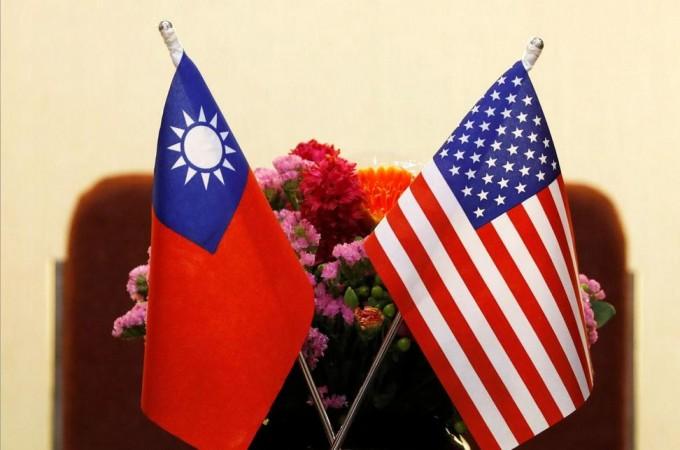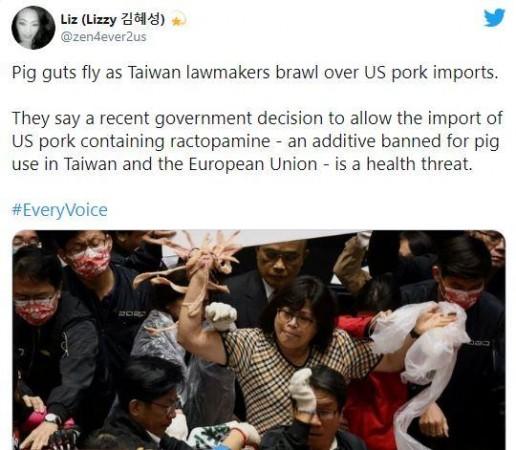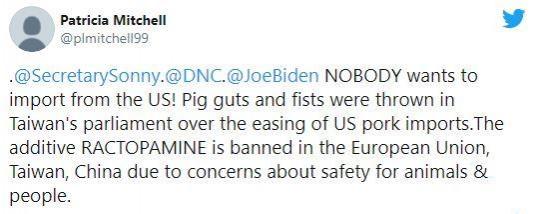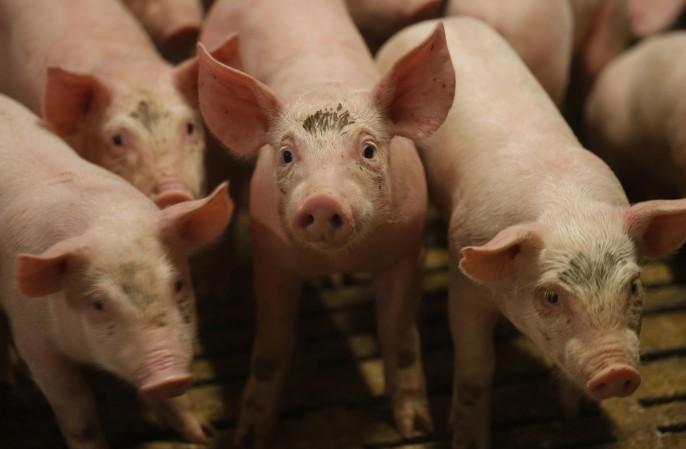Taiwanese parliamentarians on Friday engaged in a brawl as the main opposition Kuomintang (KMT) party threw pig guts and exchanged punches with their colleagues from the opposite party over a soon-to-be enacted policy that would ease pork and beef imports from the United States.
US-Taiwan Trade Agreement
As per the South China Morning Post report, Taiwanese President Tsai Ing-wen announced in August that the government, from January 1, would allow imports of US pork and beef, effectively removing one of the major obstacles to a US-Taiwan bilateral free trade agreement.

Achieving a bilateral trade agreement (BTA) between the U.S. and Taiwan has been a long-held dream among advocates of the overall bilateral relationship.
The announcement may have removed the roadblock to a long sought after US free-trade deal with Taiwan, but the KMT had since the beginning strongly opposed the decision, tapping into public concern about food safety following several high-profile scandals in recent years.
The new policy allows imports of pork with acceptable residues of ractopamine, a drug added to animal feed that promotes the growth of lean meat that some farmers use in pigs. The use of ractopamine was banned in 160 countries, including the European Union, mainland China and Russia, while 27 other countries, such as Japan, the United States, South Korea, and New Zealand have deemed meat from livestock fed ractopamine safe for human consumption.



Since the latest session of parliament began in mid-September, the KMT has protested against the pork decision by blocking Premier Su Tseng-chang from delivering regular reports and taking questions by occupying the podium where he speaks.
Fed up with the paralysis, the ruling Democratic Progressive Party (DPP) decided they were going to ensure Su could speak on Friday, and formed a protective barrier around him as he made his way in, as KMT lawmakers blew whistles, held banners and sounded air horns.

As Su began speaking, KMT lawmakers threw buckets of pig guts his way, and some exchanged blows, with a short but vicious encounter between a group of KMT legislators and Chen Po-wei from the small Taiwan Statebuilding Party.
Amid a row over US #pork #imports, lawmakers from #Taiwan ’s opposition #party hurled buckets of #pig guts in the self-ruled island’s parliament ?????pic.twitter.com/QgRqx40zAJ https://t.co/E8YKAL8KlP
— Jeremy Song (@tezuma75) November 27, 2020
In 2017, a similar brawl, marked by violent fist fights had erupted in the Taiwanese parliament during a budget meeting over an infrastructure development plan, which was advocated by the ruling Democratic Progressive Party and opposed by the Kuomintang Party.
Legislative violence in Indian Parliament
Meanwhile, this time, it may be the story of Vietnamese Parliament but such rambunctious incidents are not uncommon in the Indian parliament. Suspension of parliament sessions or a lawmaker being asked to leave during the ongoing House proceedings is just another common affair.

A recent incident in March, proceedings in the parliament were suspended after a protest over the Delhi riots ended in a scuffle between lawmakers in the floor of the lower house. It was the first session since religious violence in the capital killed 46 people, wherein opposition MPs carried a large banner into the chamber which called for the resignation of home minister Amit Shah. The protesting legislators, majorly belonging to the Congress party, were in a view that Shah, a long-time right hand man of Prime Minister Narendra Modi, was responsible for policing in the capital and allowing mobs of hundreds, if not thousands of Hindus to lynch Muslims and burn mosques and Muslim homes and businesses, unchecked.
However, ruckus in state legislatures is also not a big deal in India. In 2014, a massive brawl broke out in the Uttar Pradesh State Assembly between the BJP MLAs and other parties after a heated debate on a vote of confidence against the ruling BJP party. Chairs were thrown and microphones were used as missiles, as the MLAs fought a pitched battle. While expelled Congress MP Lagadapati Rajagopal, in the same year, had used a pepper spray on pro-Telangana MPs after Home Minister Sushilkumar Shinde introduced the Telangana Bill in the parliament. It was the first time when an Indian MP used a pepper spray inside the House.














